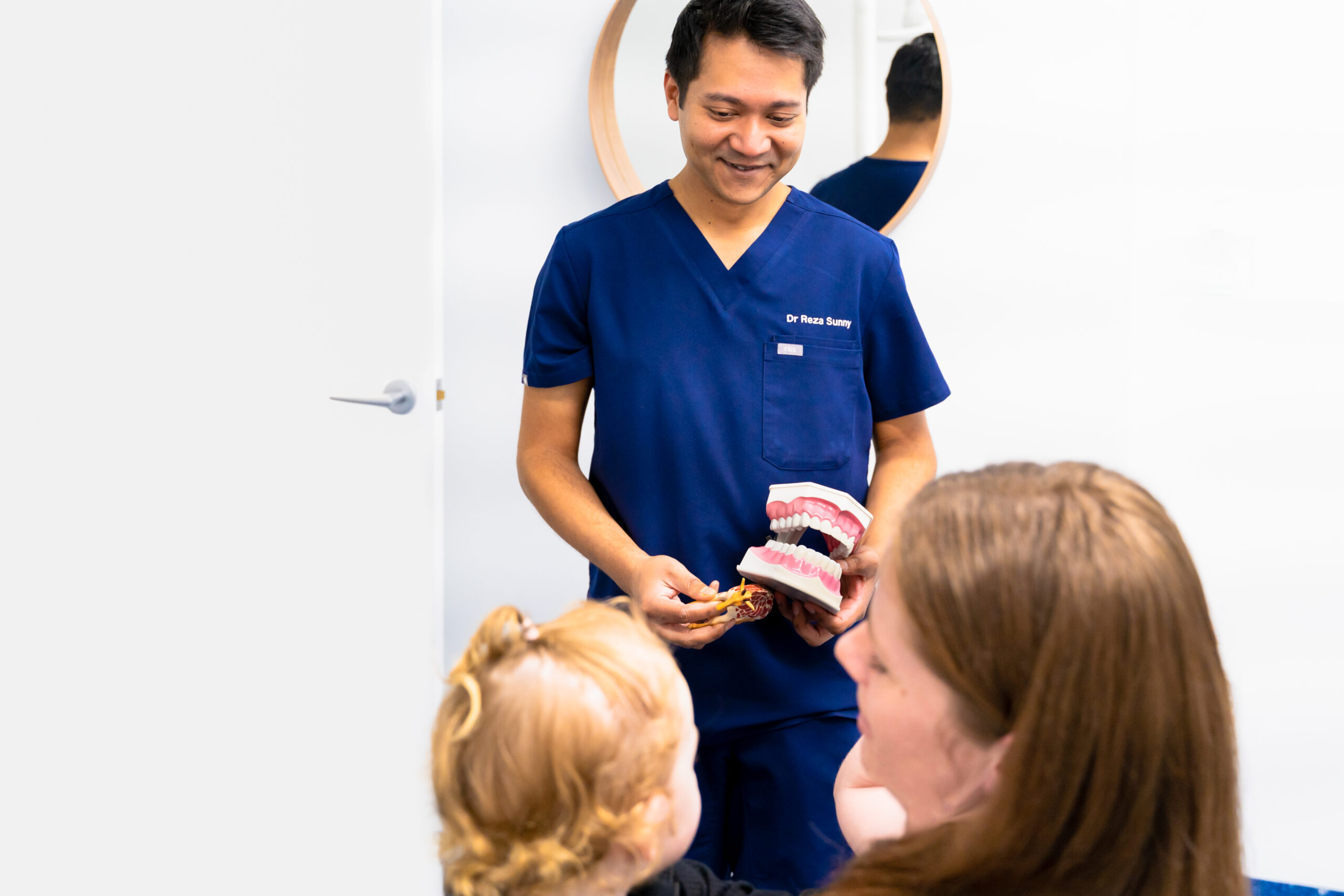From deep cleaning procedures to advanced gum therapies, we offer a range of treatments designed to restore the health of your gums and prevent further damage.

What Is Gum Disease?
Gum disease, also known as periodontal disease, is a bacterial infection that affects the tissues that support and surround the teeth, including the gums, ligaments, and bones.


What Causes Gum Disease?
Gum disease is primarily caused by the accumulation of bacterial plaque on teeth and gums. Plaque is a sticky film of bacteria that forms constantly on teeth and can harden into tartar if not removed through regular brushing and flossing. This buildup of plaque and tartar can lead to various stages of periodontal disease:
Gingivitis
The earliest stage of gum disease, gingivitis, is characterised by inflammation of the gums. This occurs when plaque irritates the gum tissue, causing redness, swelling, and bleeding during brushing or flossing.
Periodontitis
If gingivitis is left untreated, it can progress to periodontitis. This stage involves deeper inflammation and infection that affects the supporting structures of the teeth, including the bone. Pockets can form between the teeth and gums, trapping more plaque and bacteria.
Preferred Health Fund
Providers with:







Effective Gum Disease Treatment and Prevention
Gum disease, also known as periodontal disease, can lead to serious oral health issues if left untreated. Our skilled professionals will assess the condition of your gums and create a treatment plan to combat the disease and prevent its progression.
From deep cleaning procedures to advanced gum therapies, we offer a range of treatments designed to restore the health of your gums and prevent further damage.
What Are the Complications of Periodontal Disease?
Periodontal disease, if left untreated, can lead to a range of serious complications that extend beyond the mouth.
As the disease progresses, it can result in the loss of the supporting structures of the teeth, leading to tooth mobility and eventual tooth loss. Moreover, the inflammation and bacteria associated with periodontal disease can enter the bloodstream and potentially contribute to systemic health issues such as cardiovascular disease, diabetes complications, respiratory problems, and pregnancy complications. Additionally, advanced periodontal disease can cause abscesses, oral infections, and chronic bad breath.
Addressing periodontal disease promptly through professional dental care is crucial to prevent these potential complications and maintain both oral and overall health.


How Is Periodontal Disease Treated?
The treatment of periodontal disease depends on the severity of the condition. It typically involves a combination of professional dental care and improved oral hygiene practices at home. Here’s an overview of the treatment process:
Professional Dental Cleaning (Scaling and Root Planing)
In the early stage of gum disease (gingivitis), a professional dental cleaning can effectively remove plaque and tartar from the teeth and gums. This process, known as scaling and root planing, involves thorough cleaning of the tooth surfaces, including below the gumline, to remove bacteria and irritants.
Maintenance of Oral Hygiene
Patients are educated on proper brushing and flossing techniques and encouraged to maintain consistent oral hygiene practices at home. This helps prevent plaque buildup and supports the healing process.
Antibacterial Treatments
In some cases, antibiotics or antimicrobial mouthwashes may be prescribed to help control bacterial growth and inflammation.
Surgical Procedures
For advanced cases, surgical interventions might be necessary. Procedures such as flap surgery, bone grafting, and tissue regeneration can help repair damaged tissues, reduce pocket depth, and restore gum health.
What our patients say



Moorooka Dental Care
Shop C, 132 Beaudesert Road,
Moorooka QLD 4105
Tel: (07) 3848 3193
Public Transport:
From the city to Moorooka Dental Care, you may hop on the buses with numbers 110/125/115 /124. If you are travelling from the south side, you may take the buses with the numbers 110/115/117/124/125.
Our practice is 1.9km from the Moorooka train station.
